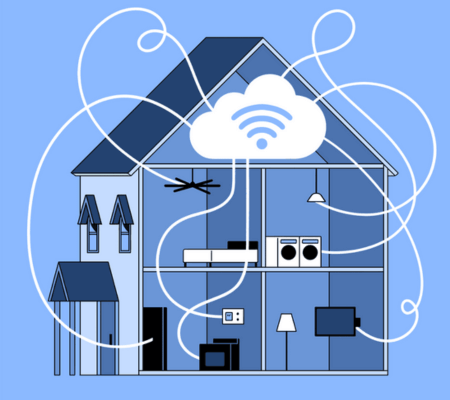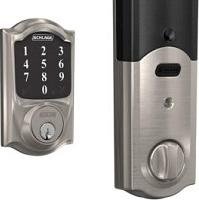Table of Contents
ToggleIntroduction to Smart Home Technology
Smart home technology in America has transformed the way we live, bringing unprecedented convenience, security, and efficiency to our daily routines. This article explores the various aspects of smart home technology, its key components, benefits, and future trends that are shaping the American smart home landscape.

What is Smart Home Technology?
Smart home technology refers to a suite of devices and systems that are interconnected via the Internet, allowing homeowners to monitor, control, and automate various functions within their homes. These systems often include lighting, heating, security, and entertainment devices that can be controlled remotely via smartphones, tablets, or voice commands.
Key Components of Smart Home Technology
1. Smart Hubs and Controllers
Smart hubs act as the central point of control for all smart home devices. They allow different devices to communicate and can be managed through a single interface. Examples include:
- Amazon Echo with Alexa
- Google Nest Hub
- Apple HomeKit
2. Smart Lighting
Smart lighting systems offer advanced features such as remote control, scheduling, and dimming. Popular products include:
- Philips Hue bulbs
- LIFX smart lights
3. Smart Thermostats
Smart thermostats help regulate home temperature efficiently, learning user habits and adjusting settings automatically. Leading products are:
- Nest Learning Thermostat
- Ecobee SmartThermostat
4. Smart Security Systems
Smart security systems enhance home safety through real-time monitoring and alerts. Key devices include:
- Ring Video Doorbell
- Arlo Security Cameras
5. Smart Appliances
Smart appliances offer enhanced functionality and connectivity, making household tasks easier. Examples are:
- Samsung Smart Refrigerators
- LG Smart Washing Machines
6. Smart Entertainment Systems
Smart entertainment systems integrate various media devices for a seamless experience. Key products include:
- Roku Streaming Stick
- Amazon Fire TV
Benefits of Smart Home Technology
1. Convenience and Control
Smart home technology allows homeowners to control various functions remotely, making everyday tasks simpler and more convenient.
2. Enhanced Security
Smart security systems provide real-time alerts and remote monitoring, significantly enhancing home security.
3. Energy Efficiency
Smart thermostats and lighting systems help reduce energy consumption, leading to lower utility bills and a smaller environmental footprint.
4. Increased Property Value
Homes equipped with smart technology are more attractive to buyers, often resulting in higher property values.
5. Customization
Smart home systems offer high levels of customization, allowing users to tailor their home environment to their specific preferences.
Popular Smart Home Technologies in America
1. Voice Assistants
Voice assistants like Amazon Alexa, Google Assistant, and Apple’s Siri are integral to many smart home systems, enabling voice control of various devices.
2. Home Automation Systems
Home automation systems like Samsung SmartThings and Apple HomeKit provide comprehensive control over multiple smart devices, streamlining home management.
3. Smart Security Solutions
Smart security solutions such as Nest Cam, Ring Alarm, and ADT Command offer advanced security features, including video surveillance, motion detection, and emergency alerts.
4. Energy Management Systems
Energy management systems like the Nest Learning Thermostat and Ecobee SmartThermostat help optimize energy usage, reducing costs and environmental impact.
5. Smart Lighting Solutions
Smart lighting solutions like Philips Hue and LIFX provide customizable lighting options, including color changes, dimming, and scheduling.
Future Trends in Smart Home Technology
1. Artificial Intelligence Integration
The integration of artificial intelligence (AI) will make smart home systems more intuitive, allowing devices to learn and adapt to user preferences over time.
2. Improved Interoperability
Future smart home devices will offer enhanced interoperability, making it easier for products from different manufacturers to work together seamlessly.
3. Advanced Voice Control
Voice control technology will continue to evolve, offering more natural and sophisticated interactions with smart home devices.
4. Sustainability Focus
There will be a growing emphasis on sustainability, with smart home devices designed to minimize energy consumption and environmental impact.
5. Smart Neighborhoods
The concept of smart neighborhoods will expand, where entire communities are interconnected through smart technology, enhancing overall quality of life.
Conclusion
Smart home technology in America is revolutionizing modern living, offering unparalleled convenience, security, and efficiency. With advancements in AI, interoperability, and sustainability, the future of smart homes looks incredibly promising. Embracing these technologies not only enhances daily living but also contributes to a smarter, more connected world.
If you want to read more information about how to boost traffic on your Website just visit –> The Insider’s Views.









